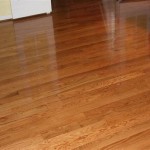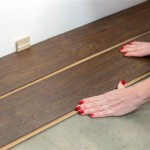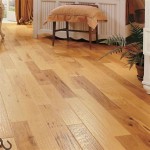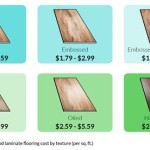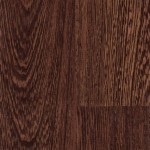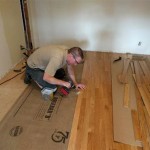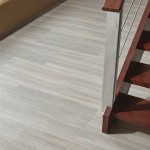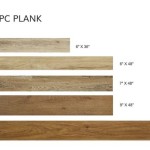Laying Floating Engineered Wood Flooring on Concrete: A Guide to Essential Aspects
Transforming your concrete subfloor with engineered wood flooring can enhance the aesthetics and functionality of your space. However, ensuring a successful installation requires careful planning and adherence to specific steps. This guide will provide you with an overview of the essential aspects to consider when laying floating engineered wood flooring on concrete.
1. Subfloor Preparation
Before installing the flooring, it is crucial to prepare the concrete subfloor thoroughly. This involves leveling the surface to remove any unevenness that could affect the flooring's stability. Additionally, the subfloor must be clean and dry to ensure proper adhesion. A moisture barrier should be applied to prevent moisture from seeping into the flooring and causing damage.
2. Choosing the Right Underlayment
An underlayment is a layer of material placed between the concrete subfloor and the engineered wood flooring. It serves several purposes, including reducing noise and providing insulation. When selecting an underlayment, consider its thickness and density to ensure it provides adequate support and cushioning for the flooring.
3. Acclimation of Flooring
Before installation, it is essential to acclimate the engineered wood flooring to the environment where it will be laid. This involves storing the flooring in the room where it will be installed for several days to allow it to adjust to the temperature and humidity levels. Acclimation helps prevent buckling or warping after installation.
4. Installation Process
The installation process of floating engineered wood flooring is relatively straightforward. The planks are typically equipped with tongue-and-groove joints that allow them to be easily interlocked. Start by laying the first row of planks along a straight wall, ensuring that there is a small expansion gap around the perimeter. Continue laying subsequent rows, staggering the joints to enhance stability. Tap the planks together gently using a tapping block and mallet.
5. Trimming and Finishing
Once the flooring is installed, it is necessary to trim around obstacles such as walls, doorways, and moldings. A jigsaw or circular saw can be used for precise cuts. Baseboards or moldings can then be installed to cover the expansion gap around the perimeter and provide a finished look.
Additional Tips:
- Use a chalk line to ensure straight rows.
- Wear safety glasses and a dust mask during installation.
- Allow the flooring to settle for 24-48 hours before placing heavy furniture.
- Maintain the flooring regularly by sweeping, vacuuming, and using Bona Floor Cleaner.

Floating Engineered Hardwood

Installing Wood Flooring Over Concrete Diy

Installing Engineered Hardwood On Concrete Villagio Guide

How To Install Lock Engineered Hardwood Flooring

Fitting Hardwood Floor To Concrete Wood And Beyond Blog

Installing Engineered Hardwood On Concrete Twenty Oak

How To Install Lock Engineered Hardwood Flooring

Installing Engineered Hardwood On Concrete Twenty Oak

Pickndecor Com Floating Hardwood Floor Best Wood Flooring Laying Floors

Installing Wood Subfloors Over Concrete Hardwood Floors
Related Posts

